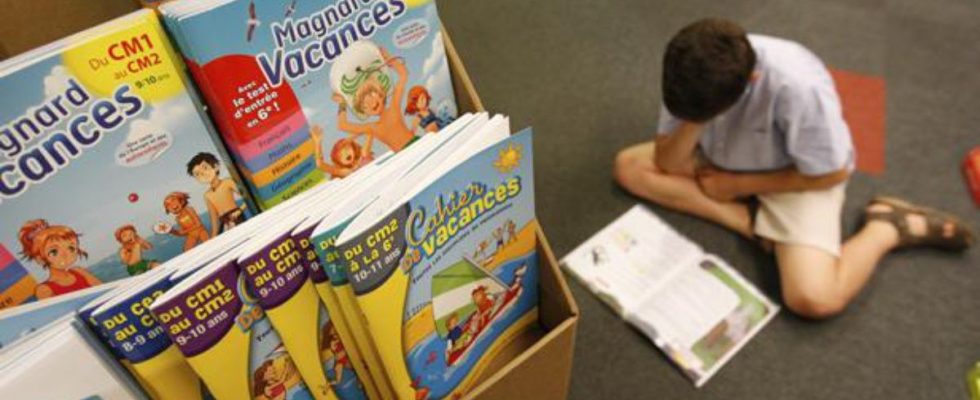“Holidays, I forget everything”. We know the song, but what is it really for French schoolchildren?
At each start of the school year, many students find it difficult to return to school after a break of two or three months (for middle and high school students whose establishment became an examination center in June for the patent or bac). “They move on and go fallow,” sums up Patrick Rayou, professor of education at the University of Paris VIII. And some of them seem to have forgotten concepts learned during the previous school year, especially those that are assimilated through repeated exercises, such as the spelling of certain words, multiplication tables, conjugations…
“After six weeks without review, some students are no longer able to give an adjective or make a division with restraint, when they knew how to do it at the end of the school year. What parents are perfectly aware of, since the French are the biggest consumers of holiday notebooks in Europe”, underlines Edwige Antier, pediatrician and specialist in education issues*. “On the other hand, learning that is based on understanding and reflection is generally not negatively impacted by the holidays,” says Bruno SuchautProfessor of Educational Sciences at the Institute for Research on Education.
The decisive role of the family environment
But all children would not be equal in the face of these summer oversights, according to Patrick Rayou: “The school gaps widen during the summer. First of all, because not all children maintain their knowledge through holiday homework, by practicing writing or by reading regularly. It is also noted that it is often the best students who manage to complete their holiday homework. On the contrary, the most in difficulty neglect revisions when they would need to maintain the work reflex and maintain their knowledge”. According to Edwige Antier, the fact of working a little would even make it possible, in certain cases, to make up for one’s shortcomings “provided they are helped by their parents”. “However, some parents who have had a difficult education have a blockage vis-à-vis holiday homework and find it difficult to help their children,” she continues.
“School gaps also increase in the summer because pupils from the most privileged backgrounds continue to learn through the activities offered to them by their parents: reading, board games, visits to monuments… Occupations that open their minds and boost their general culture. They are intellectually stimulated, enrich their vocabulary… Not to mention the steps taken by some parents who pay their children for language stays or refresher courses before the start of the school year,” adds Bruno Suchaut. An opinion shared by Evelyne Antier who believes that “summer aggravates the social divide”.
Catch up on the last few weeks
However, “there is no fatality in the field”, she underlines. “Some temporary losses can be made up for, even a fortnight before the start of the school year, provided you get back to work seriously,” says Patrick Rayou. Late review sessions on the main concepts of the program can thus allow students to get back on their feet before the start of the school year. For their part, the teachers are doing their best to facilitate the welding between summer and the start of the new school year: “The first weeks, we avoid tackling a new apprenticeship head-on and we review concepts that were discussed at the end of the previous year. This allows everyone to adapt smoothly to their new class and to resume good school habits, “said Alice, a primary school teacher.

